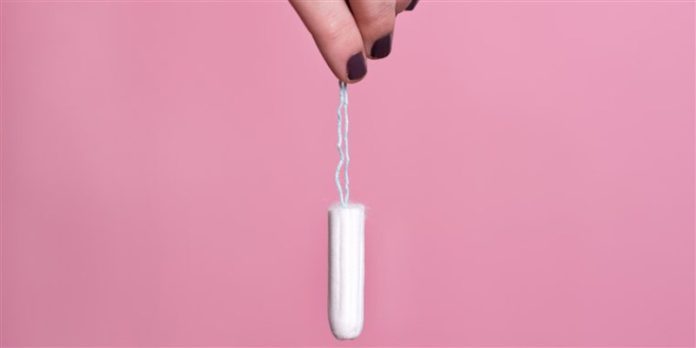What do wine, cigarettes and tampons have in common? They’re all classed as “luxury goods” in Germany and taxed at the highest possible rate.The country has one of the higher tax rates on feminine hygiene products in the European Union, ranking 11th out of the 28 member states.
But that is set to change, following a landmark vote in the German parliament Thursday.The government, apparently swayed by a growing equal rights campaign, says the sales tax on sanitary products like tampons and pads will be reduced from next year.
From January 1, 2020, the amount of tax on sanitary items will be cut from 19% (for luxury goods) to 7% (the rate for daily necessities).Green MP Lisa Paus tweeted that the move was a “great success” and “an important step toward a tax system that does not discriminate against women.”Finance Minister Olaf Scholz told reporters at a press briefing last month: “Many women campaigned for this and now we’re making it happen.”
‘It’s women who bear the costs’
For equal rights campaigners Nanna-Josephine Roloff and Yasemin Kotra, it’s a victory years in the making. Their online petition to the lower the tampon tax — one of many presented to the German parliament on the topic — has received almost 200,000 signatures. It “paved the way forward to change the law,” Scholz told Roloff during a meeting earlier this year, according to Roloff.
It’s difficult to put a price on how much sanitary products will cost a woman over her lifetime. One report from London’s City Hall last year estimated that a lifetime’s worth of disposable menstrual products costs women in the British capital £2,280 ($2,945).
And that’s doesn’t take into account all the associated costs like pain relief, replacement underwear, and sick days from work and school. “It is the women who bear these costs — and periods are no luxury for women,” Roloff told CNN.Instead, the tax is “systematic discrimination” against women and girls, the 28-year-old PR consultant from Hamburg added.”Products like salmon, caviar, truffles, hotel nights or taxi rides are taxed lower than female hygiene products,” she said. “But how should women avoid their period?”Tweeting after parliament’s vote, Roloff celebrated the win, writing: “We made it: Germany will stop taxing menstrual products by 2020. I am crying.”
Creative campaign methods
While the campaign had overwhelmingly positive support from “all sides, including men,” Roloff said, it was also the target of abuse.The campaigners faced “really bad and tasteless comments” online, said Roloff. Anonymous comments like “why don’t you take out your womb, so you no longer have this issue,” were posted on their petition site, she added.
Over the years, activists have come up with creative ways to get their message across.In June, campaigners published The Tampon Book — quite literally a book filled with 15 tampons. Books are taxed at 7% in Germany, far less than the 19% tax on tampons, so the book was a clever way of getting around the higher rate.The campaigners from the Female Company, which sells organic sanitary products, later sent 100 copies of the book to members of parliament.
Tampon tax around the world
While Germany has one of the higher tampon tax rates in the EU, the top spot is Hungary, where women fork out 27% tax on their hygiene products, followed by Denmark, Croatia and Sweden on 25%.Germany now looks set to follow in the footsteps of France, Spain, Portugal and the Netherlands which either plan to, or have already, slashed their taxes in recent years.
The only EU country to have a zero tax rate on sanitary goods is Ireland. Meanwhile, Greece actually increased its tax from 13% to 23% in response to the austerity crisis.Globally, just a handful of countries have zero tax added to sanitary products, including Canada, India, Kenya and several US states. Most recently, Australian lawmakers last month voted to scrap the country’s tax following an almost two-decade campaign by activists.For Roloff, the tampon tax is part of a bigger picture of inequality around the world.
“It shows the misogyny that is still very prevalent in our society today,” she said. For now, Roloff already has her eyes set on a new campaign.”Free menstrual items in all public facilities,” she said. Places like “schools, hospitals, government offices, public toilets.””You see toilet paper everywhere — no one is expected to run around the world with a roll of toilet paper — but nowhere are tampons to be found,” Roloff added. “As far as equality is concerned, the women in front of us have already achieved a great deal,” said Roloff. “So we should not rest on that.”
Source: CNN

